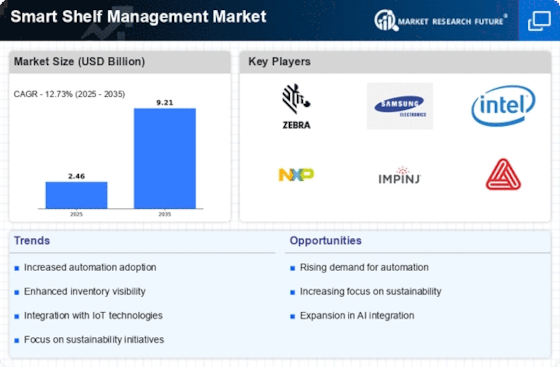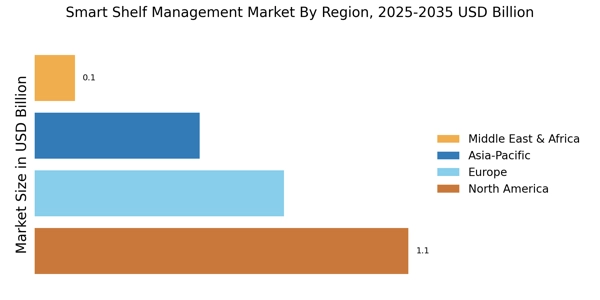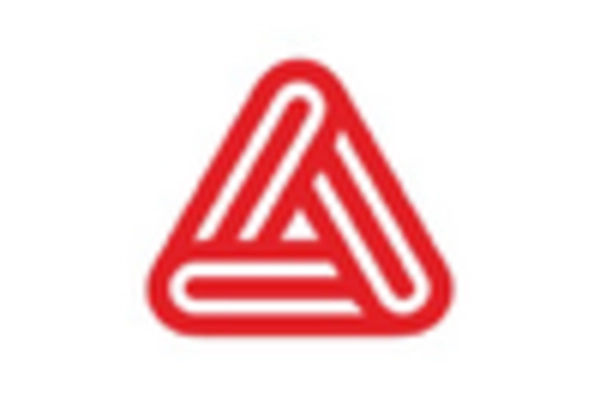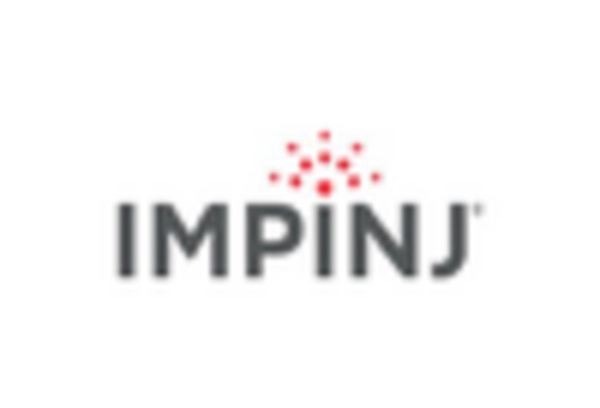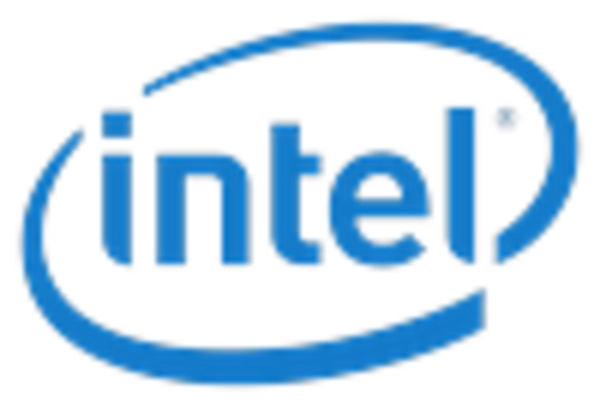Increased Focus on Cost Reduction
An increased focus on cost reduction is driving the Smart Shelf Management Market as retailers seek to enhance profitability. With rising operational costs, businesses are compelled to adopt technologies that streamline processes and reduce waste. Smart shelf management systems can significantly lower labor costs by automating inventory checks and minimizing human error. Furthermore, these systems can help in optimizing stock levels, thereby reducing excess inventory and associated holding costs. It is projected that retailers implementing smart shelf solutions can achieve cost savings of up to 20%, making this technology a compelling choice for those looking to improve their bottom line.
Growing Emphasis on Data Analytics
The Smart Shelf Management Market is witnessing a growing emphasis on data analytics as retailers seek to leverage data-driven insights for better decision-making. With the increasing volume of data generated from sales transactions and customer interactions, businesses are turning to analytics tools to interpret this information effectively. It is estimated that The Smart Shelf Management Market will reach USD 274 billion by 2022, highlighting the importance of data in retail strategies. By utilizing data analytics, retailers can optimize shelf space, forecast demand more accurately, and tailor their offerings to meet customer preferences, thereby enhancing their competitive edge in the market.
Shift Towards Omnichannel Retailing
The shift towards omnichannel retailing is significantly influencing the Smart Shelf Management Market. Retailers are increasingly adopting a seamless shopping experience across various channels, including online and brick-and-mortar stores. This trend necessitates efficient inventory management systems that can synchronize stock levels across all platforms. As per industry reports, omnichannel customers tend to spend 30% more than single-channel customers, underscoring the financial benefits of this approach. Smart shelf management solutions that facilitate real-time inventory updates and provide visibility across channels are becoming indispensable for retailers aiming to meet the demands of modern consumers.
Technological Advancements in Retail
Technological advancements are playing a pivotal role in shaping the Smart Shelf Management Market. Innovations such as RFID technology, artificial intelligence, and machine learning are being integrated into smart shelf solutions, enabling retailers to automate inventory tracking and improve data accuracy. For instance, RFID tags can provide real-time visibility into stock levels, which is crucial for effective shelf management. The market for RFID technology alone is expected to reach USD 30 billion by 2026, indicating a robust growth trajectory. These advancements not only streamline operations but also enhance the overall shopping experience for consumers, making smart shelf management an attractive investment for retailers.
Rising Demand for Inventory Management Solutions
The Smart Shelf Management Market is experiencing a notable surge in demand for advanced inventory management solutions. Retailers are increasingly recognizing the necessity of real-time inventory tracking to enhance operational efficiency. According to recent data, the market for inventory management systems is projected to grow at a compound annual growth rate of approximately 10% over the next five years. This growth is driven by the need for businesses to minimize stockouts and overstock situations, which can lead to lost sales and increased holding costs. As a result, smart shelf management technologies that integrate with existing inventory systems are becoming essential for retailers aiming to optimize their supply chain processes.


